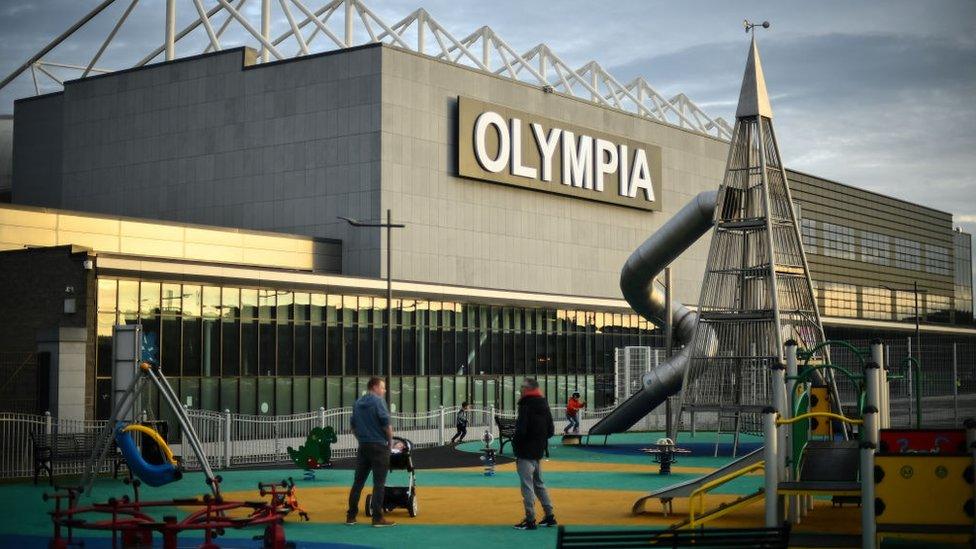Irish language: Consultation on Olympia Leisure Centre signs
- Published

Olympia Leisure Centre is close to the mainly Protestant Village area
A proposal by Belfast City Council to install Irish language signs at a leisure centre has been put to public consultation.
The dual-language signage is proposed for Olympia Leisure Centre, off the Boucher Road and close to the mainly Protestant Village area.
The council said Belfast "aims to be a welcoming and inclusive city for all".
It said its language strategy aims to create a place where linguistic diversity is celebrated and respected.
However, DUP South Belfast assembly member Edwin Poots said the proposal was causing "anger and angst" in the area.
"This is being done by imposing this on a community that says 'no, we're not ready for that and no we don't want that'," he told BBC News NI's Good Morning Ulster programme.
"I want this place to be a place where people feel they can come, that isn't politicised and it's there for its purpose - and that is a leisure centre.
"If they have any respect for the unionist community, they will withdraw this proposal and put the Irish language signage where the Irish language signage is wanted, and we will have no issue whatsoever with that."

Edwin Poots said the signs are being imposed in an area where it is not wanted
But SDLP councillor Carl Whyte said the Irish language "belongs to everyone".
"We see the revival in all parts of the city - east, south, north and west," he said.
"We need to really embrace this language and understand that it belongs to all those who live in Belfast and across Northern Ireland."
Public events are being held at the centre for people to give their opinions on the signs and an equality impact assessment is being carried out.
The 14-week consultation began on Monday.
People can register for online events here, external and for public events here, external.
Last July, Belfast councillors agreed a new policy on dual-language street signs.
It means that one resident of a Belfast street, or a councillor, is all that is required to trigger a consultation on signs.
If 15% of those living in a street are in favour of new signage, that is enough to install the sign.
Non-responses will no longer be counted as "against" votes, and there will be an equality assessment for each application.